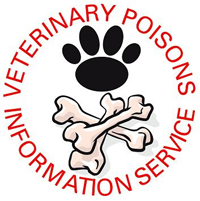The internationally renowned UK based poisons information service, the Veterinary Poisons Information Service (VPIS) has issued a warning to all vets across the UK with regard to nicotine poisoning from the ingestion of liquid nicotine in E-Cigrarettes.
The VPIS, officially launched in 1992, advises on the management of poisoned animals; and has since assisted with over 300,000 poison cases.
Following reports in the media of serious or fatal cases of exposure to the liquid in e-cigarettes, both in dogs and humans (around twenty children a year suffer from nicotine poisoning); the service issued the following statement:
Although the numbers of cases so far are small, VPIS has already received a few enquiries and vets and the public should be aware that nicotine in all its forms is highly toxic.
Exposure to nicotine-containing products (tobacco, nicotine replacement gums and patches, agricultural pesticides and e-cigarettes or ENDS) is potentially hazardous.
 A typical ‘natural’ cigarette could yield, at most, 30mg of nicotine (most have less) and the ‘butts’ and filters of used cigarettes remain toxic. The toxic dose of nicotine is unclear and most of the data is from human exposures1 - VPIS suggest that 1mg/kg of ingested nicotine or its equivalent in tobacco products is potentially toxic. Nicotine in the correct formulation is also well absorbed through skin and mucous membranes.
A typical ‘natural’ cigarette could yield, at most, 30mg of nicotine (most have less) and the ‘butts’ and filters of used cigarettes remain toxic. The toxic dose of nicotine is unclear and most of the data is from human exposures1 - VPIS suggest that 1mg/kg of ingested nicotine or its equivalent in tobacco products is potentially toxic. Nicotine in the correct formulation is also well absorbed through skin and mucous membranes.
E-cigarettes and their refills contain large doses of nicotine (up to 36mg per ml). How well absorbed or how ‘available’ this is for oral or mucosal absorption is not known, but it is reasonable to take any exposure seriously. Ingestion of refill bottles/vials may present a particular hazard as the nicotine may leak over a period of time or may suddenly be released after a variable period in the gut.
Nicotine is an alkaloid from the tobacco plant (Nicotiana species); it causes cholinergic effects with brief CNS Nicotinestimulation followed by CNS depression. It initially stimulates the autonomic nervous system causing brief excitation of the adrenal medulla, CNS, CVS (due to the release of catecholamines), gastrointestinal tract (parasympathetic stimulation), salivary and bronchial glands and the medullary vomiting centre.
This is followed by blockade of the autonomic nervous system, inhibition of catecholamine release from the adrenal medulla and CNS depression.
Absorption of nicotine is rapid. Urinary elimination depends on the urine pH; excretion decreases as the urine becomes more alkaline – however forced alkaline diuresis is not recommended due to the risk of fluid overload.
We would encourage vets to report any nicotine-related poisoning cases via VPIS’ online tool ‘Report a Case’ found here
Source: VPIS / Unionsafety


 A typical ‘natural’ cigarette could yield, at most, 30mg of nicotine (most have less) and the ‘butts’ and filters of used cigarettes remain toxic. The toxic dose of nicotine is unclear and most of the data is from human exposures1 - VPIS suggest that 1mg/kg of ingested nicotine or its equivalent in tobacco products is potentially toxic. Nicotine in the correct formulation is also well absorbed through skin and mucous membranes.
A typical ‘natural’ cigarette could yield, at most, 30mg of nicotine (most have less) and the ‘butts’ and filters of used cigarettes remain toxic. The toxic dose of nicotine is unclear and most of the data is from human exposures1 - VPIS suggest that 1mg/kg of ingested nicotine or its equivalent in tobacco products is potentially toxic. Nicotine in the correct formulation is also well absorbed through skin and mucous membranes.